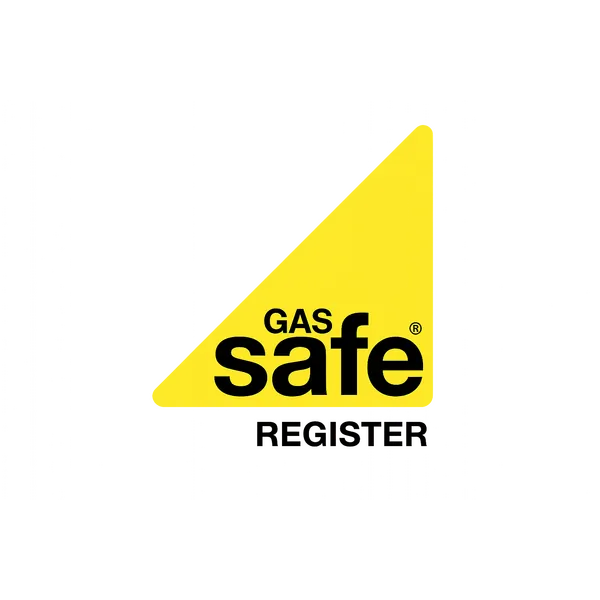How an Energy Survey Can Maximise the ROI of Your Renovations
When planning home or commercial renovations, most property owners focus on aesthetics, functionality, and immediate comfort improvements. However, the most financially savvy approach begins not with choosing paint colours or flooring materials, but with understanding your building's energy performance through a comprehensive energy survey. This data-driven foundation transforms renovation spending from speculative investment to calculated strategy, ensuring every pound delivers maximum return.
The Cost of Guessing: Why Intuition Fails in Energy Efficiency
Traditional renovation planning often relies on assumptions and conventional wisdom about what improvements will save energy and money. Property owners might install double-glazed windows because "everyone knows they're efficient" or add loft insulation because it's "the obvious first step." While these measures can be beneficial, implementing them without understanding your specific building's performance characteristics is like prescribing medicine without a diagnosis.
The Hidden Inefficiencies in Conventional Approaches
Buildings are complex systems where energy performance depends on the interaction between multiple elements: insulation, air tightness, heating systems, ventilation, and thermal bridging. Without professional assessment, you risk:
- Addressing Symptoms, Not Causes: Treating condensation with better ventilation when the real issue is inadequate insulation
- Creating New Problems: Improving air tightness without considering ventilation needs, leading to indoor air quality issues
- Missing Critical Opportunities: Overlooking less visible but highly impactful improvements like addressing thermal bridging
- Wasting Capital: Spending thousands on measures that deliver minimal energy savings relative to their cost
An energy survey provides the diagnostic clarity needed to avoid these costly mistakes, transforming renovation from guesswork to precision engineering.
The Survey-First Advantage: Data-Driven Decision Making
A professional energy survey conducted by experts like CRG Direct delivers comprehensive insights that form the foundation of intelligent renovation planning. This approach moves beyond generic recommendations to provide building-specific intelligence.
Comprehensive Building Assessment
Our surveys examine multiple aspects of your property's energy performance:
- Thermal Imaging: Identifies heat loss patterns, insulation gaps, and thermal bridging invisible to the naked eye
- Air Tightness Testing: Measures uncontrolled air leakage that undermines insulation effectiveness
- Heating System Analysis: Evaluates boiler efficiency, distribution losses, and control system optimisation
- Fabric Performance: Assesses walls, floors, roofs, and windows for thermal performance characteristics
- Ventilation Assessment: Ensures adequate air exchange while minimising heat loss
This multi-faceted approach creates a complete picture of how your building performs as an integrated system, not just a collection of individual components.
Staged Improvement Strategies: The Phased Investment Approach
One of the most valuable outcomes of an energy survey is the ability to create a prioritised, staged improvement plan. Rather than attempting everything at once or making random improvements, you can implement measures in the optimal sequence for maximum cumulative benefit.
The Logical Progression of Energy Improvements
A well-structured renovation strategy typically follows this pattern:
- Fabric First: Address building envelope issues (insulation, air tightness) before upgrading heating systems
- Efficiency Optimisation: Improve existing system performance through controls, zoning, and maintenance
- System Replacement: Upgrade to high-efficiency heating and hot water systems only after fabric improvements
- Renewable Integration: Add solar PV, heat pumps, or other renewables as the final step
This staged approach ensures that each improvement builds on the previous ones, with later measures benefiting from the enhanced performance of earlier upgrades. For example, improving insulation first means any subsequent heating system can be smaller and more cost-effective.
Financial Benefits of Staged Implementation
The phased approach delivers significant financial advantages:
- Cash Flow Management: Spreads capital expenditure over time, making large-scale improvements more affordable
- Immediate Savings: Early-stage measures often deliver quick returns, funding subsequent improvements
- Avoided Overspending: Prevents installing oversized systems that would be inefficient after fabric improvements
- Adaptive Planning: Allows for adjustment based on changing technologies, costs, and personal circumstances
Grant Eligibility Optimisation: Unlocking External Funding
In the current landscape of government initiatives and energy company obligations, substantial funding exists for energy efficiency improvements. However, accessing these funds typically requires professional assessment and specific qualification criteria.
Navigating the Funding Landscape
An energy survey positions you to maximise grant and subsidy opportunities:
- ECO4 Scheme Eligibility: Identifies measures that qualify for Energy Company Obligation funding
- Local Authority Grants: Matches your property's needs with available council improvement schemes
- Future Funding Preparedness: Establishes baseline data needed for emerging programmes
- Multiple Measure Bundling: Combines improvements to meet minimum savings thresholds for funding
Without professional assessment, property owners often miss these opportunities or pursue ineligible measures, leaving thousands of pounds in potential funding unused.
CRG Direct's Data-Driven Investment Planning
At CRG Direct, we transform energy surveys from simple assessments into comprehensive investment roadmaps. Our approach integrates technical analysis with financial modelling to deliver clear, actionable strategies.
Our Comprehensive Analysis Framework
Every survey we conduct includes:
- ROI Calculations: Precise payback periods and lifetime savings for each recommended measure
- Priority Scoring: Objective ranking of improvements based on cost, savings, and impact
- Implementation Sequencing: Optimal timing and phasing recommendations
- Risk Assessment: Identification of potential issues and mitigation strategies
- Regulatory Compliance: Guidance on building regulations and future standards
This investment-focused approach ensures that every recommendation is evaluated not just for technical merit, but for financial performance and strategic alignment with your goals.
Case Study: Transforming a Victorian Terrace
Consider a typical Victorian terrace property where the owners planned to replace their aging gas boiler as the first renovation priority. Our energy survey revealed:
- Significant heat loss through uninsulated solid walls
- Poor loft insulation with multiple gaps
- Substantial air leakage around windows and floorboards
- Adequate boiler performance relative to fabric issues
Our recommended staged approach:
- Immediate: Loft insulation upgrade and air sealing (£800 investment, £180 annual saving)
- Year 1: Internal wall insulation (£4,200 investment, £420 annual saving)
- Year 3: High-efficiency boiler replacement (£2,800 investment, £160 additional annual saving)
This sequence delivered 45% higher overall savings compared to replacing the boiler first, with a combined payback period of 8 years rather than 17 years for boiler-only replacement.
Beyond Energy Savings: The Comprehensive Value Proposition
While reduced energy bills provide the most direct financial return, the benefits of survey-informed renovations extend far beyond utility savings.
Additional Value Streams
- Property Value Enhancement: Energy-efficient properties command premium prices and attract buyers faster
- Improved Comfort: Consistent temperatures, reduced drafts, and better humidity control
- Health Benefits: Better indoor air quality and reduced condensation/mould risks
- Future-Proofing: Preparation for evolving energy standards and potential regulations
- Resilience: Reduced vulnerability to energy price volatility and supply disruptions
These additional benefits often justify investments that might appear marginal based on energy savings alone, particularly when considered over the long ownership period typical of UK properties.
The Smart Investor's Approach to Renovations
In an era of rising energy costs and increasing environmental awareness, energy performance has become a critical factor in property value and operating costs. The survey-first approach represents the evolution of renovation planning from art to science.
Key Principles for Maximum ROI
- Measure Before You Manage: Base decisions on data, not assumptions
- Think Systematically: Consider interactions between building elements
- Plan Long-Term: Implement improvements in logical sequence
- Capture External Value: Leverage available funding and future value enhancement
- Validate Performance: Use post-implementation testing to confirm results
This methodology transforms renovation from reactive maintenance to strategic investment, positioning your property for long-term financial and environmental performance.
Ready to Transform Your Renovation Strategy?
Don't leave your renovation ROI to chance. Contact CRG Direct today to schedule your comprehensive energy survey and begin your journey toward data-driven, maximally efficient property improvements. Our team of experts will provide the insights and strategic guidance needed to ensure every renovation pound delivers maximum return.
Get in touch with our energy assessment team to discuss how we can help optimise your renovation investment strategy.















